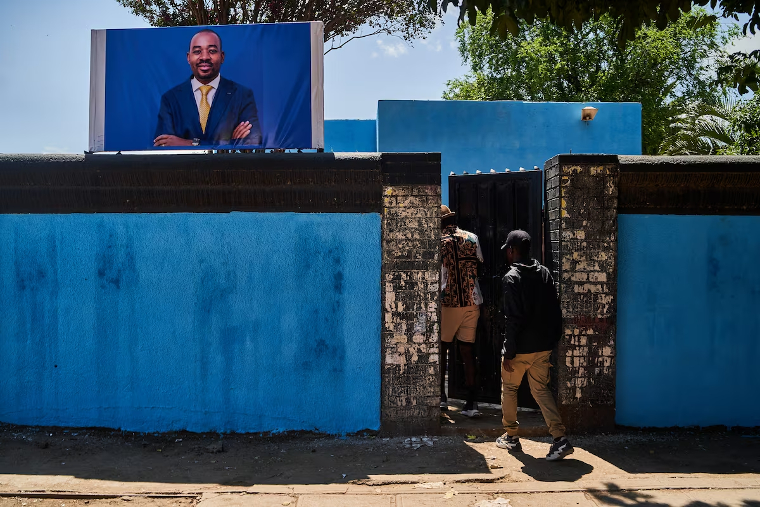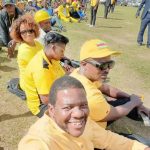 When an obscure Zimbabwean politician announced a takeover of the country’s biggest opposition party last October, its members were astonished and baffled. But they soon realised that their party was in deep trouble.
When an obscure Zimbabwean politician announced a takeover of the country’s biggest opposition party last October, its members were astonished and baffled. But they soon realised that their party was in deep trouble.
Four months later, the Zimbabwean opposition is fragmented and leaderless, while the ruling party has exploited the confusion to secure a two-thirds majority in the national assembly – a crucial step in prolonging its 44 years of domination in the country.
Sengezo Tshabangu, a textile and bricks businessman from western Zimbabwe who has held a series of minor positions in several opposition parties since 1999, shocked the country by installing himself as interim secretary-general of the Citizens Coalition for Change (CCC) – and then ousting many of its MPs from Parliament.
“Nobody knew him,” said Rusty Markham, a CCC parliamentarian who had just won re-election a few weeks before Tshabangu wrested control of the party.
“I’ve never met him. I can honestly not even tell you his history. He wasn’t known by anyone until he wrote a letter saying that he’s now the secretary-general.”
For months, CCC’s leaders fought in the courts in a desperate battle against Tshabangu’s edicts, which the parliamentary speaker had swiftly accepted. The position of “secretary-general” did not even exist in the party, the CCC officials noted.
But in a country where the judiciary is heavily influenced by the ruling ZANU-PF party, they had little hope of winning. The courts approved Tshabangu’s recall of two dozen MPs, triggering a wave of by-elections, which ZANU-PF swept easily because the courts prohibited dozens of opposition candidates from running.
“It was a simple choreographed dance,” said Mr. Markham, who served five years as a city councillor and five years as an MP before this year. “It was a fiasco.”
In the national elections last August, CCC leader Nelson Chamisa had finished second with 44 percent of the vote, according to the official count, while ZANU-PF won the presidency and captured 177 of the 280 seats in the national assembly, the lower house of Parliament.
But after Tshabangu’s manoeuvres, the ruling party now holds 190 seats – potentially enough to change the constitution and extend the rule of President Emmerson Mnangagwa, who took power in 2017 after a military coup.
The President is constitutionally barred from seeking a third term, but now analysts expect him to prolong his rule – and the rule of the party that has governed Zimbabwe since its independence after the liberation war of the 1970s.
“It’s frustrating because basically we’re living in a one-party state,” Markham said.
“There’s no way these people are going to give up power. They came into power by coup, and before that they came into power by liberation war, and that’s the only way they know, and they’ll hang on for dear life.”
Tshabangu, in a Zimbabwean television interview in December, denied rumours that he was secretly a member of ZANU-PF – although he acknowledged that he had sometimes defended the ruling party in the past. He also defended Mnangagwa at a public inquiry over a deadly military crackdown against protestors in 2018.
Continued next page
(285 VIEWS)

